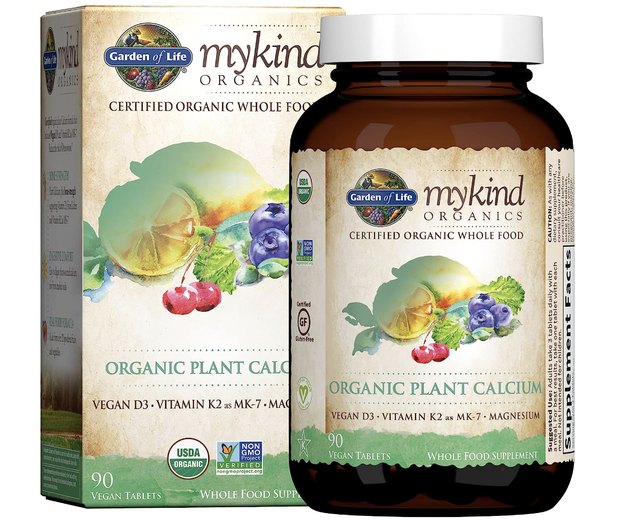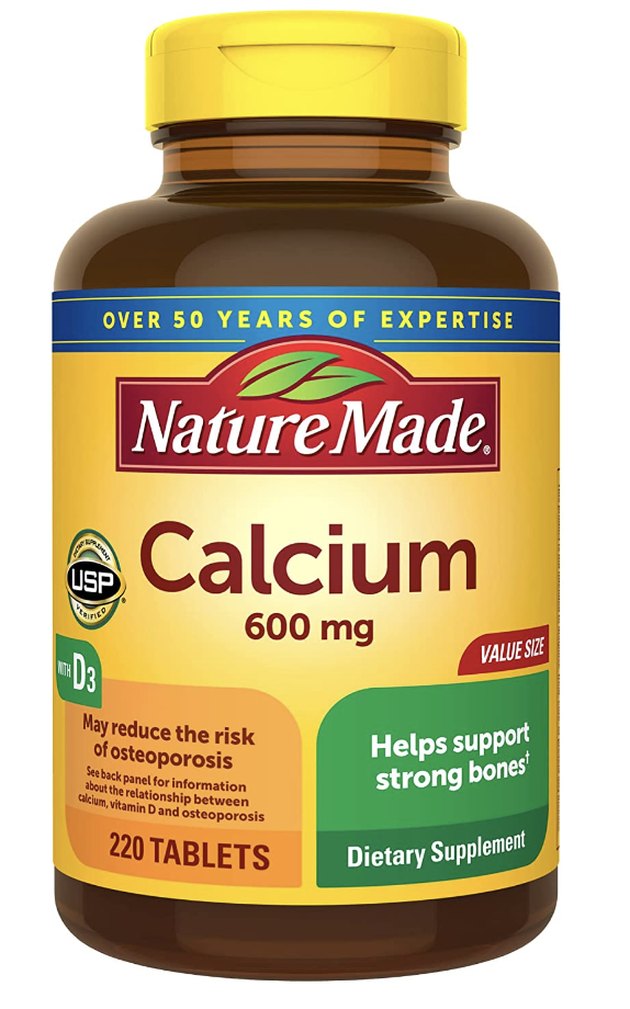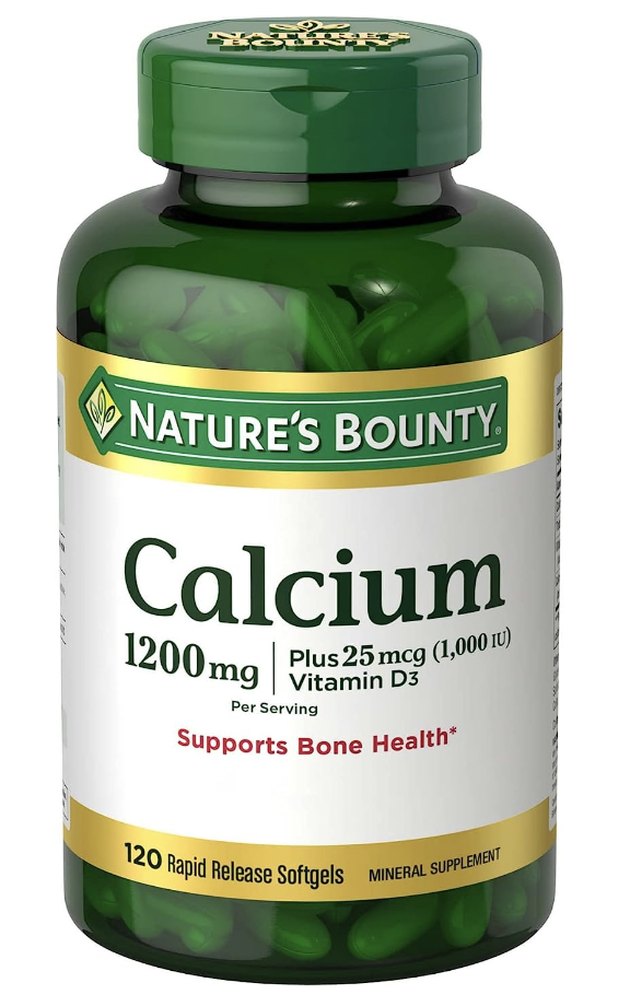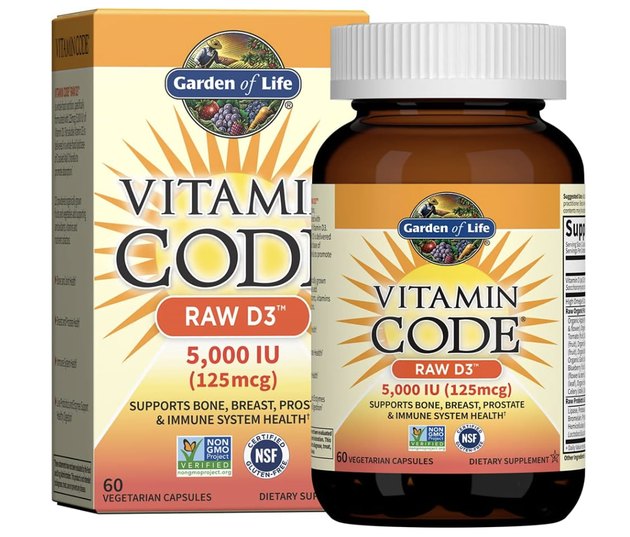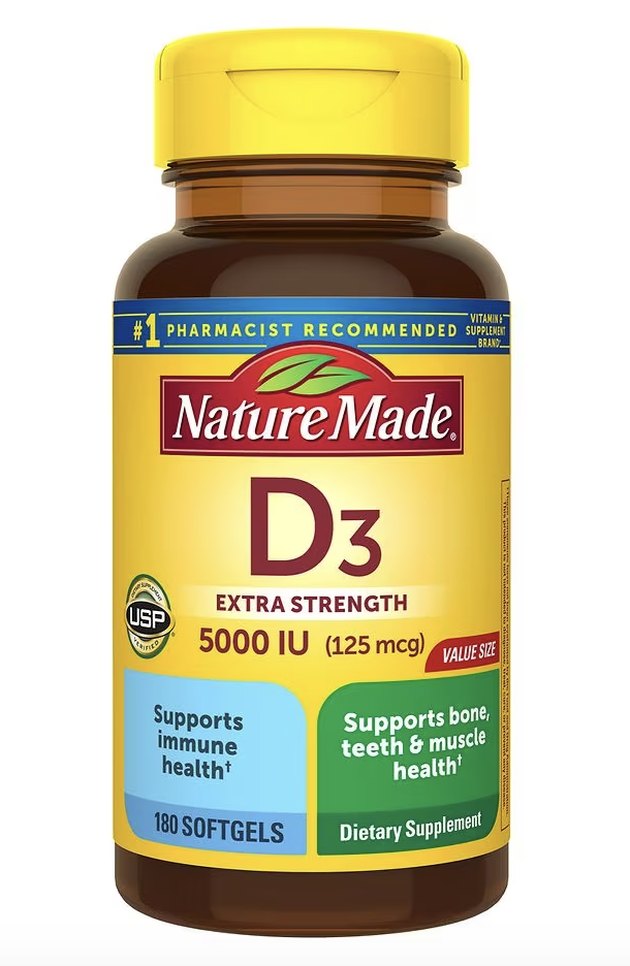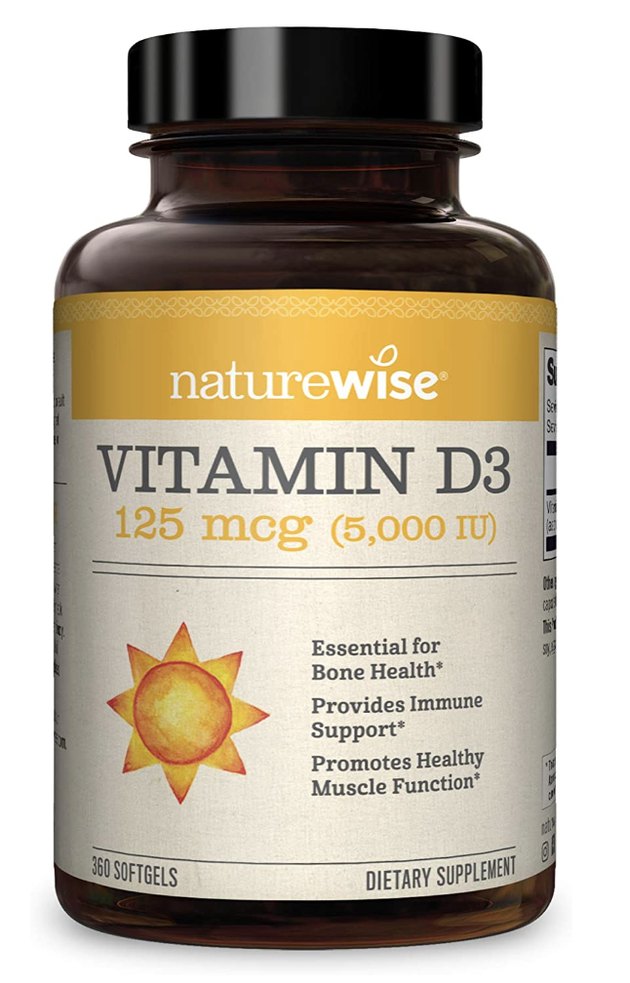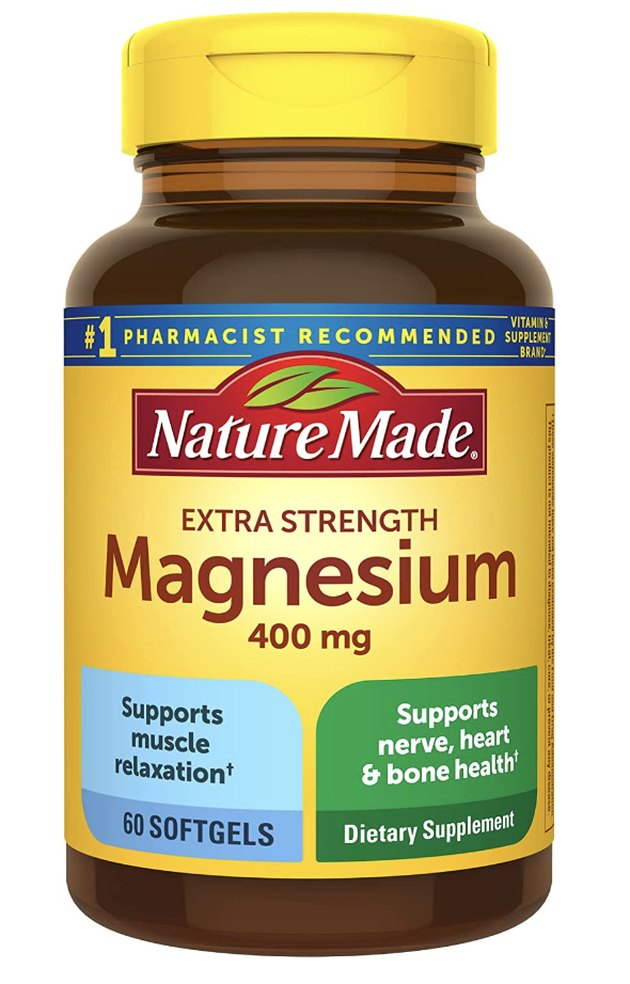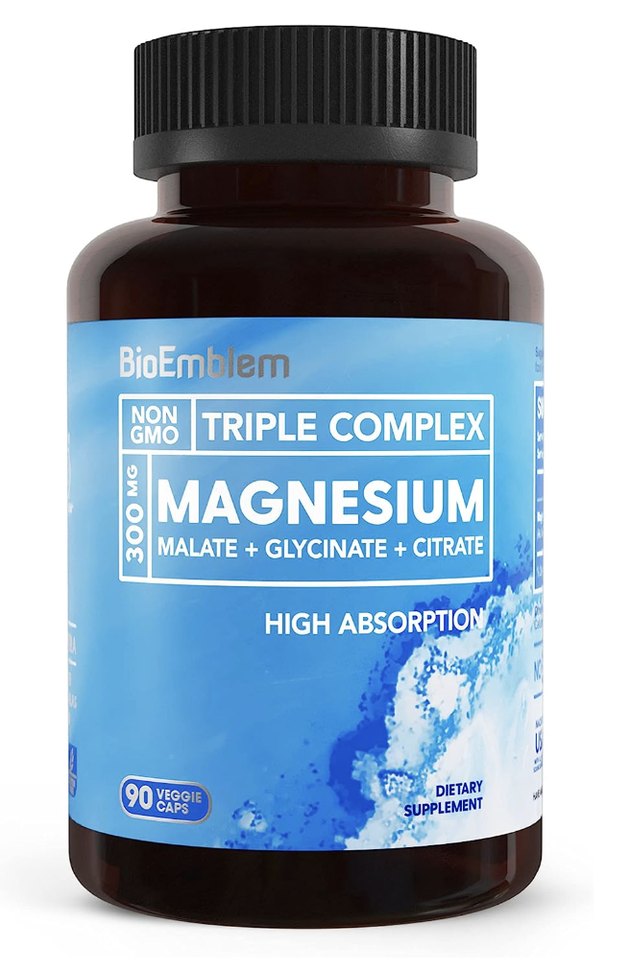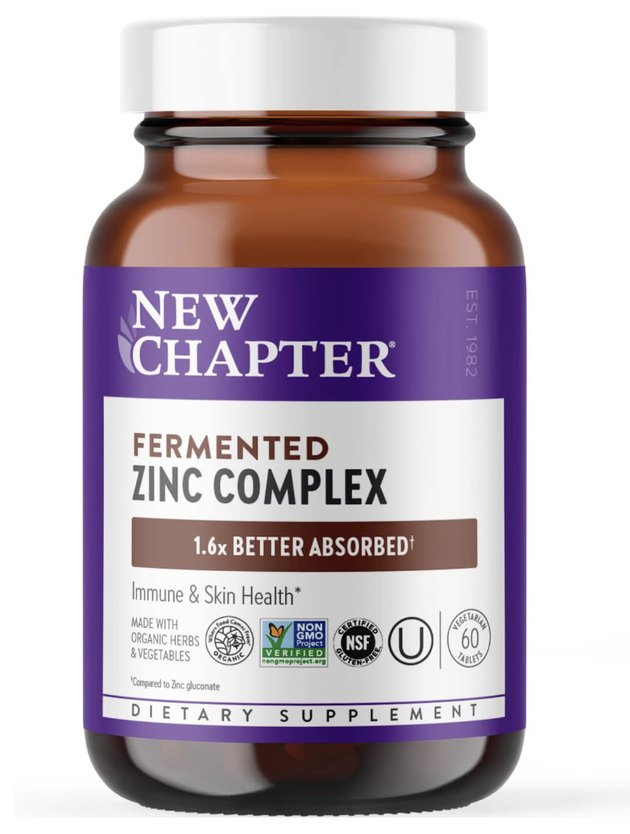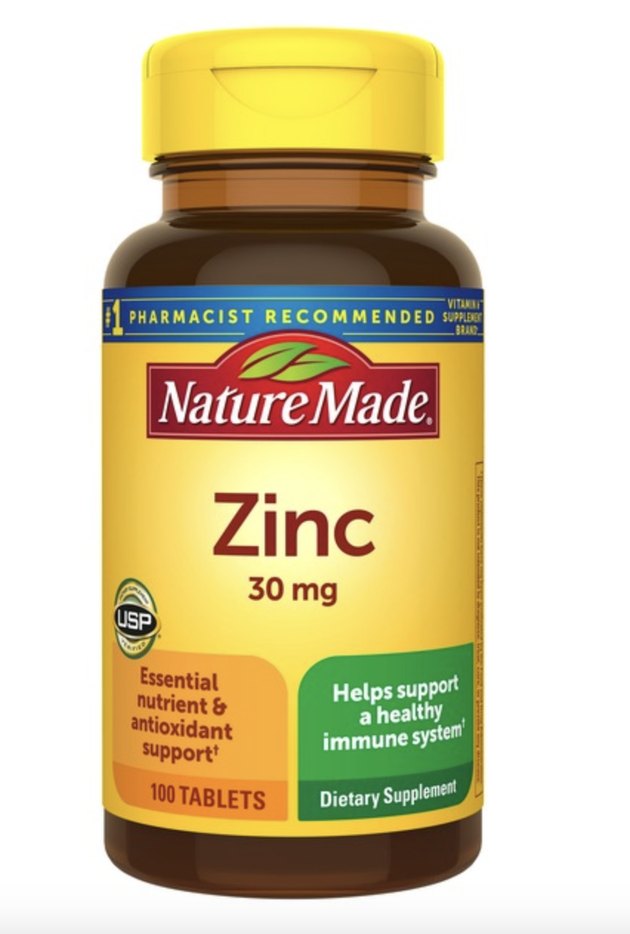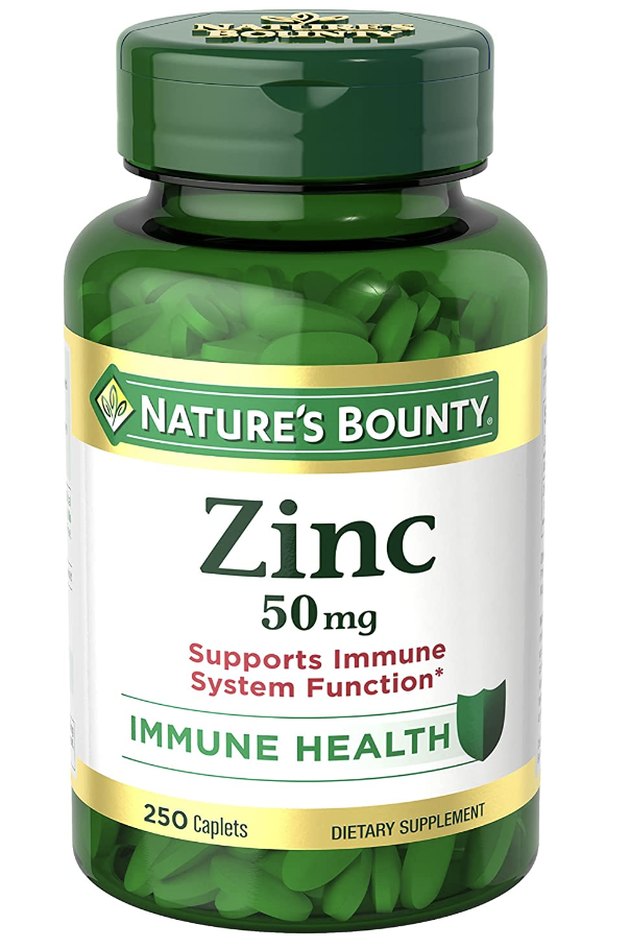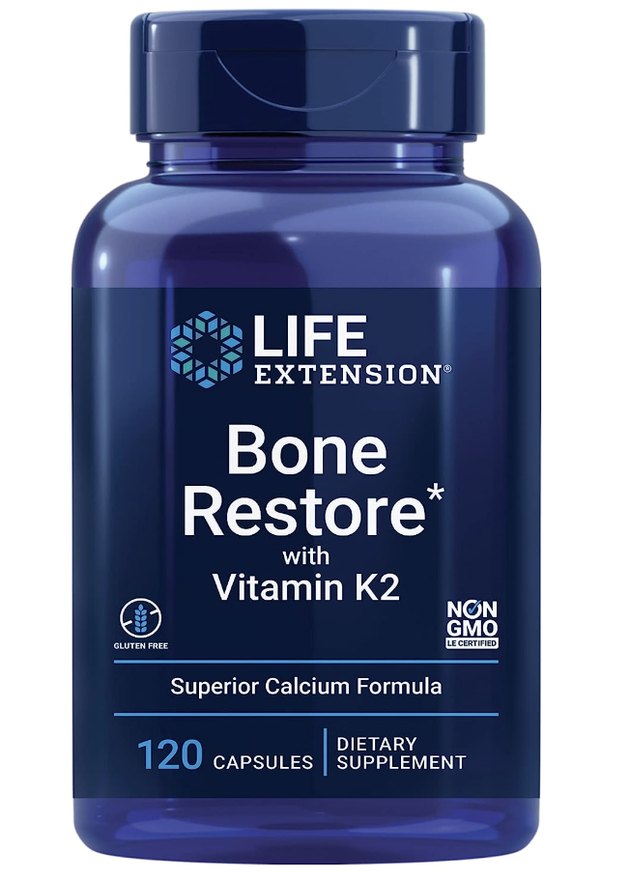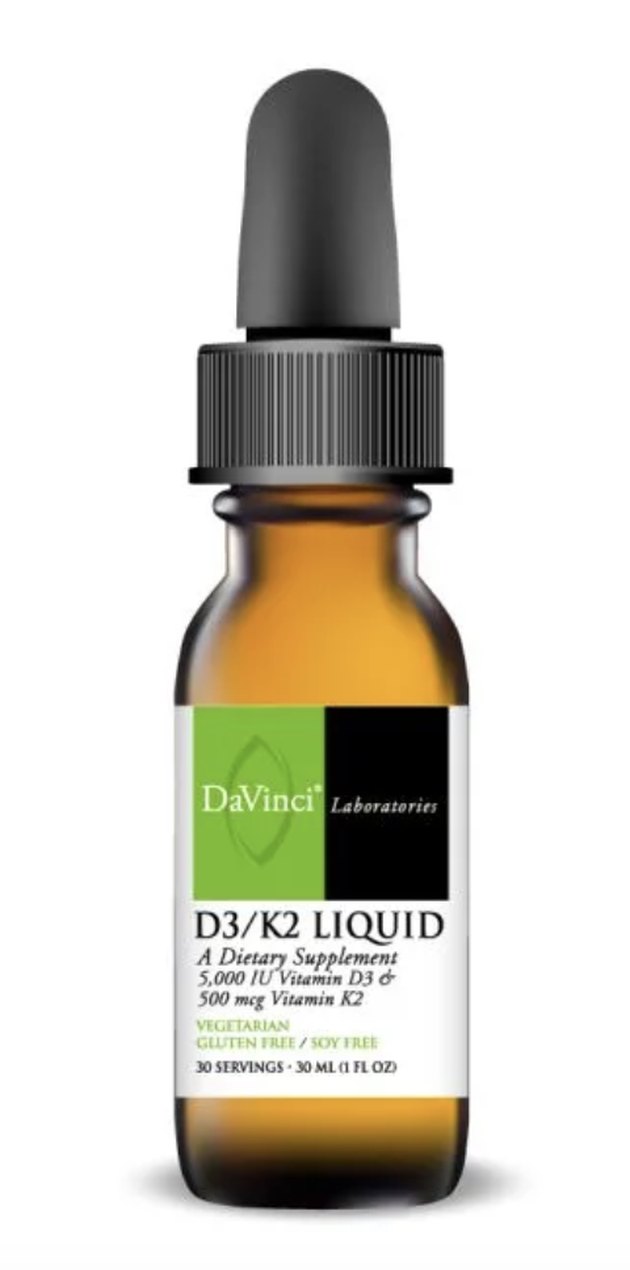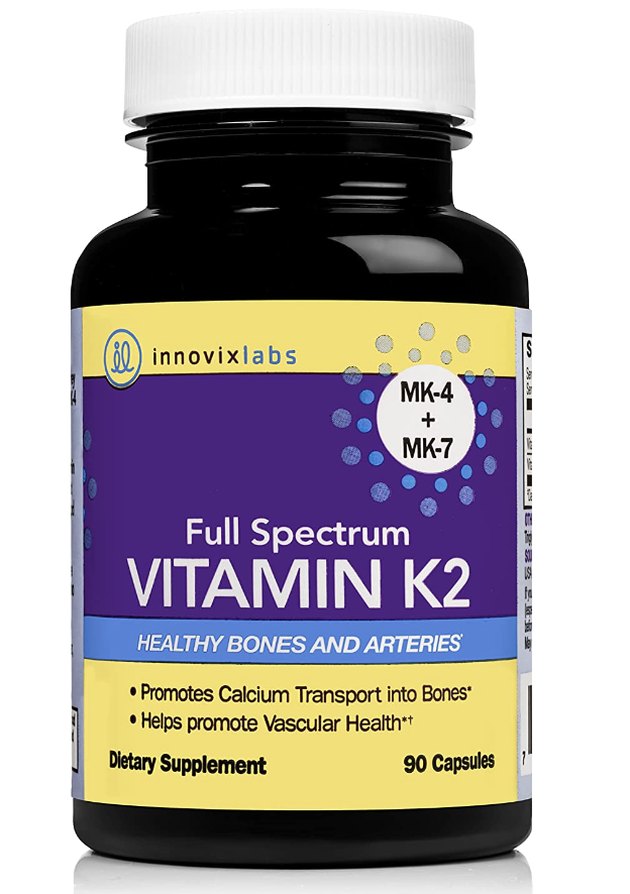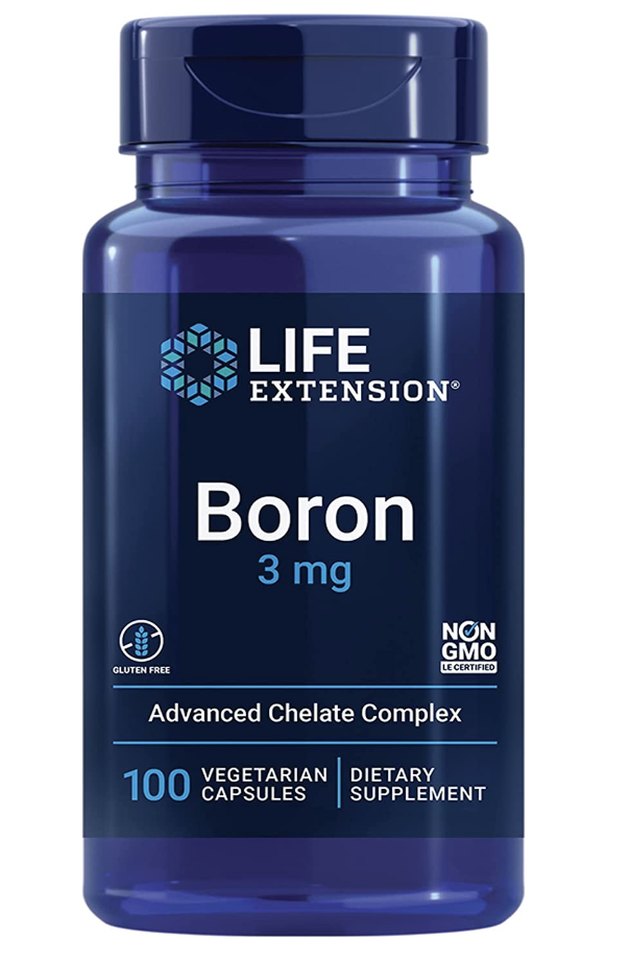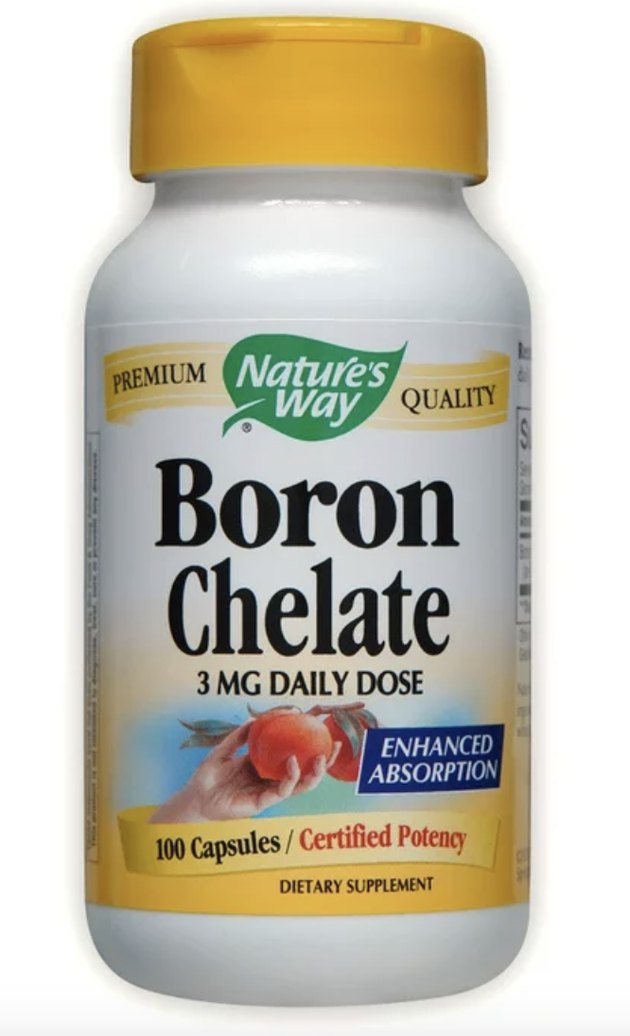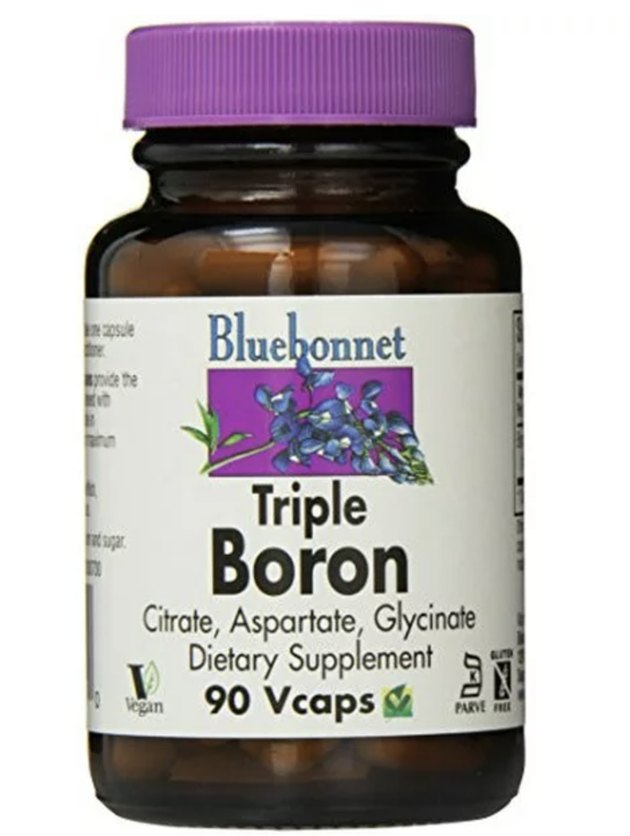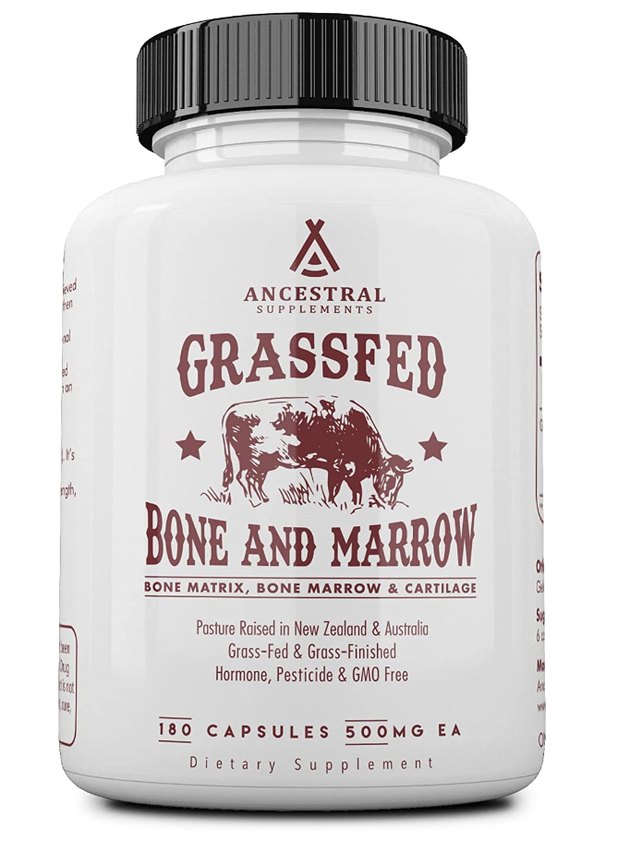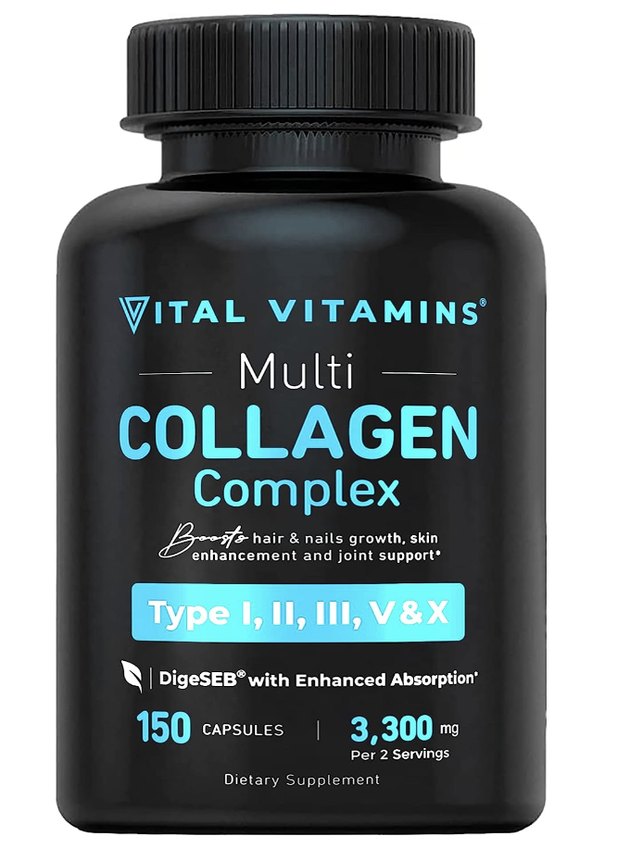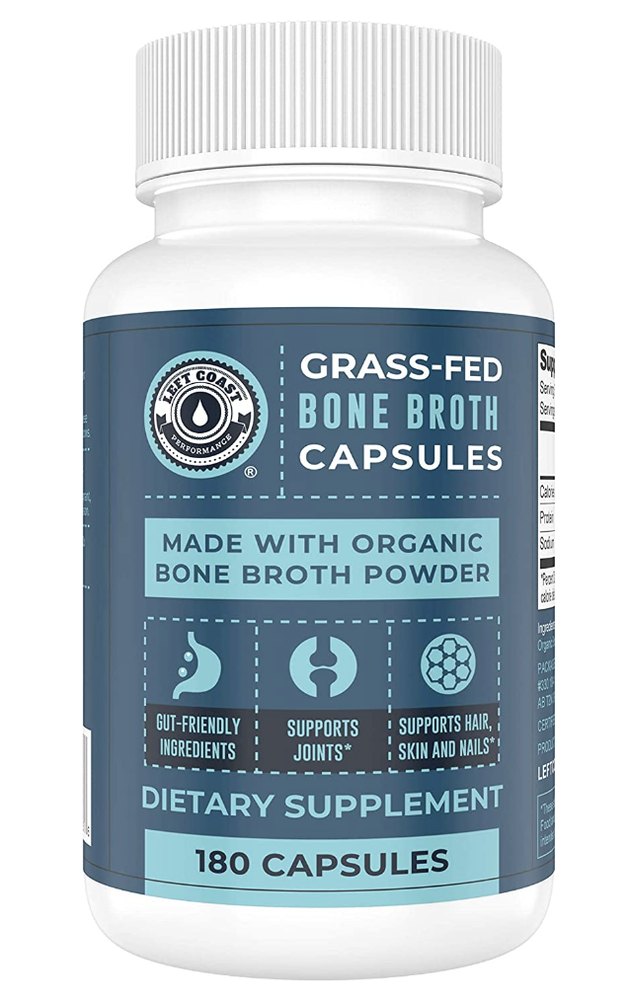
Physical repositioning, time, rest and recovery are the only surefire ways to heal a broken bone, but there are things you can do every day to optimize your bone health and support the healing process.
For example, certain nutrients can help bolster bone strength and set up the body to be at its healthiest while healing, notes Pamela Peeke, MD, MPH, integrative and preventive medicine physician and member of Solaray's Science Advisory Team.
Video of the Day
Video of the Day
It's always best to get your nutrients from whole foods, but a supplement might be helpful if it's difficult for you to eat a nutrient-rich diet.
The bones in our bodies are made up of very definable substances — mainly, amino acids from protein, collagen and minerals, according to the National Institutes of Health (NIH). Supplementing the body with key vitamins and minerals, like calcium and vitamin D, for example, can give your body the materials it needs to heal, per the National Library of Medicine.
In short: While no supplement has the potential to heal a broken or fractured bone, some may help bolster bone health overall, which may lend itself to the healing process, according to a November 2017 study in the Journal of Osteoporosis.
With that in mind, here are the best supplements for bone healing.
Warning
Always see a doctor for a broken bone, and discuss any supplements with your doctor before you start taking them.
The Best Supplements for Bone Healing
Calcium
- Garden of Life mykind Organics Plant Calcium Supplement ($29.39, Amazon)
- Nature Made Calcium ($15.90, Amazon)
- Nature's Bounty Calcium Carbonate & Vitamin D ($11.54, Amazon)
Vitamin D3
- Garden of Life Vitamin Code Raw D3 ($19.89, Amazon)
- Nature Made Extra Strength Vitamin D3 ($31.99, Amazon)
- NatureWise Vitamin D3 ($14.99, Amazon)
Magnesium
- Nature Made Extra Strength Magnesium ($13.99, Amazon)
- BioEmblem Triple Magnesium Complex ($27.99, Amazon)
Zinc
- New Chapter Zinc Supplement ($17.79, Amazon)
- Nature Made Zinc ($4.99, CVS)
- Nature's Bounty Zinc Caplets ($9.48, Amazon)
Vitamin K2
- Life Extension Bone Restore + Vitamin K2 ($18, Amazon)
- Da Vinci Labs D3/K2 supplement ($69.51, DaVinciLabs)
- InnovixLabs Full Spectrum Vitamin K2 ($24.99, Amazon)
Boron
- Life Extension Boron ($5.63, Amazon)
- Nature's Way Boron Complex ($10.24, Amazon)
- BlueBonnet Triple Boron ($13.19, Walmart)
Collagen
- Ancestral Supplements Grass Fed Bone and Marrow ($46.80, Amazon)
- Vital Vitamins Multi Collagen Complex ($20.57, Amazon)
- Grass-Fed Bone Broth Capsules With Collagen ($29.69, Amazon)
How We Chose
We tapped doctors and conducted thorough research to find the best types of vitamins and supplements to take for bone health and healing. All products were chosen based on the following criteria:
- Quality
- Effectiveness
- Cost
- Availability
Find more information on how we choose and cover products here.
1. Calcium
Pros
- Certified organic
- Plant-based
- Gluten-free
- Free of artificial fillers and dyes
Cons
- Pill may be too big for some people
Pros
- USP verified
- Comes with vitamin D3
- Widely available
Cons
- Some reviewers say it's hard to swallow
Pros
- Gluten, wheat- and dairy-free
- Rapid-release softgels
Cons
- Pills are big and may be hard to swallow for some
Perhaps the best-known supplement to help with bone health is calcium. As the main mineral found in our bones, calcium has a lot to offer someone who's recovering from any bone issues.
"Calcium is needed to protect bone structure and strength," Dr. Peeke says.
The NIH recommends 1,000 milligrams of calcium per day for adults ages 19 to 50, with a 200-milligram increase per day for women ages 51 and older and men over 70.
Tip
“Most calcium supplements deliver 1,000 milligrams in multiple capsules or tablets, however, your body has a limited capacity to absorb calcium at once, so medical providers recommend dividing that dose into two or three times daily so your supplement will serve you better,” Dr. Peeke says.
2. Vitamin D3
Pros
- Vegetarian
- Gluten-free
- Kosher
- Contains probiotics and digestive enzymes
Cons
- Not vegan — contains lactase
Pros
- Comes with 180 softgels
- USP verified
- Easy to swallow
Cons
- Contains added soybean and corn oil
Pros
- Non-GMO
- Made with cold-pressed olive oil
- Third-party tested
Cons
- Can melt if not stored in a cool, dry place
The right-hand supplement to calcium is vitamin D. In fact, without it, our bodies cannot properly absorb calcium from the foods we eat, per Johns Hopkins Medicine.
It's recommended to take the active form, D3, and pair it with vitamin K2 (more on that below), which helps move calcium that can accumulate in the blood and move it into bone, per a September 2017 review in the International Journal of Endocrinology.
For adults, a healthy dose of vitamin D3 to supplement is about 4,000 IUs per day (100 mcg), according to the NIH.
3. Magnesium
Pros
- No synthetic dyes, artificial flavors or preservatives
- Trusted brand
Cons
- Some reviewers say it can cause stomach upset
Pros
- Contains no fillers, artificial ingredients or preservatives
- Brand follows current Good Manufacturing Practices (cGMPs)
Cons
- Some reviewers say it can cause stomach upset
Magnesium is an essential mineral to take while supplementing vitamin D3, per a February 2019 study in the American Journal of Therapeutics.
Magnesium helps activate vitamin D, which is crucial in several bone-building enzymes, per a March 2018 study in the Journal of Osteopathic Medicine.
You can find magnesium in leafy greens, avocados, fruits like bananas, grains like rice and dark chocolate, per the Cleveland Clinic.
One of the top recommended forms is magnesium citrate, as it's one of the most bioavailable forms, per a January 2017 study in BMC Nutrition.
The tolerable upper limit for magnesium is 350 milligrams through supplements, per the Harvard T.H. Chan School of Public Health.
4. Zinc
Pros
- Can be taken on an empty stomach
- One pill per day
- Vegetarian
Cons
- Some reviewers mention pills have a chalky texture
- Contains some additives
Pros
- Widely available
- Budget-friendly
- USP verified
- Helps support your immune system
Cons
- Some reviewers don't like the pill's taste
Pros
- Gluten- and sugar-free
- No artificial flavors or sweeteners
- Budget-friendly
Cons
- Some reviewers say the pills are hard to swallow
Zinc has gotten a lot of attention, especially in recent years, for its immune-bolstering abilities, but it's also a great bone-supporter as well.
Zinc, which makes up some of the mineral layers in bone, promotes the formation of bone-building cells and stops the excessive activity of cells that break down bone, per an April 2023 review in Biological Trace Element Research.
You can find zinc in seafood, such as crab and lobster, and seeds such as pumpkin, per the NIH.
Supplemental doses range from 5 to 50 milligrams per day depending on age, sex and what you are using it for. Keep in mind, though, that excessive doses of zinc (50 milligrams or more) can interfere with your copper absorption, reduce immune function and lower HDL (good) cholesterol levels, per the NIH.
5. Vitamin K2
Pros
- Gluten-free
- Non-GMO
- Contains a mixture of bone-supporting minerals like magnesium, zinc, boron and vitamin K2
Cons
- Four pills per serving
- Can interact with certain blood thinners like warfarin (talk to your doctor)
Pros
- Supports bone and heart health
- Good for those who have difficulty swallowing a pill
- Gluten- and soy-free
Cons
- Some reviewers say the taste is too oily
- Pricey
Pros
- Supports a healthy heart and bones
- Easy to swallow
- Follows cGMPs
Cons
- Some reviewers say it takes time to notice results
A lesser-known vitamin, K2 is important in maintaining bone health.
"K2 is critical for making important proteins that are involved in blood clotting and metabolism and helps activate those proteins that are involved with bone formation and mineralization, which is what makes the bones strong," Dr. Peeke says.
You can find vitamin K2 naturally in cruciferous vegetables, dark leafy greens, asparagus, eggs, butter and liver, per the NIH.
You can also supplement to get the appropriate amounts of K2 daily.
"It is recommended that you get 100 to 300 micrograms daily for an adult dosage, which can be from food and/or supplementation," Dr. Peeke says. "The easiest way to take this in supplement form is in a supplement with calcium or with your vitamin D, but regardless of how you do it, take it with a fat, since vitamin K is fat-soluble."
6. Boron
Pros
- Non-GMO
- Gluten-free
- Budget-friendly
- Vegetarian
Cons
- Some reviewers say it can cause stomach upset
- Reviewers said it can cause orange urine
Pros
- Only one capsule per day is needed
- Budget-friendly
Cons
- Contains gelatin, which is not ideal for vegans
Pros
- Comes with a blend of boron subtypes
- Vegetables capsules
- Easy to swallow
- Soy-, gluten- and dairy-free
Cons
- Can melt together if not stored in a cool, dry place
While only a trace mineral, meaning your body only uses small amounts of it, boron has a very powerful effect on bone health, according to December 2020 review in the Journal of Trace Elements in Medicine and Biology.
Boron helps influence the important bone-building effects of other minerals — as well as calcium, magnesium and phosphorus — and it acts in synergy with vitamin D, per the same study.
Boron is also high in avocados, apples, peaches and legumes, and typical supplemental doses range from 0.15 to 6 milligrams per day, per the NIH.
7. Collagen
Pros
- Non-GMO
- Made in small batches
- No fillers, hormones or preservatives
Cons
- Reviewers say it may take a while to notice results
Pros
- High absorption
- Non-GMO
- Contains collagen from bovine, marine, chicken bone broth and eggshell membrane
Cons
- Not third-party tested
Pros
- No added fillers
- Contains protein
- Contains grass-fed bone broth
Cons
- Not certified organic
Collagen peptides are high in the amino acids glycine, proline and lysine, all of which are essential for bone building, as well as for muscles, tendons and ligaments, per a June 2022 review in Nutrition Reviews.
After calcium, collagen makes up one of the highest ingredients — percentage-wise — of bone structure, per Harvard T.H. Chan School of Public Health.
The trouble with collagen is that it can only be found in animal sources, but you can source the individual amino acids in plant sources, per the Harvard T.H. Chan School of Public Health.
Try to find collagen supplements that have been sourced from organic, grass-fed animals, if you're supplementing from animal sources. Typical doses range from 2.5 to 15 grams per day, according to UCLA Health.
What to Know Before Buying a Supplement for Bone Healing
Here are some things you should know and look out for when shopping for a supplement to aid with bone healing.
1. Reach for Whole Foods First
Before you spend money on a supplement, consider getting your bone health-supporting nutrients from whole foods rather than pills. A healthy, well-balanced diet will supply the vitamins and minerals your body needs during the healing process.
If you need some support in creating a balanced diet, work with your doctor or a registered dietitian.
2. Read the Labels
With all supplements, an important thing is to read the labels and know how the supplements are sourced, notes Adylia-Rhenee Gutierrez, certified integrative nutritionist and founder of Yhorlife.
"The best is when the ingredients are organic and/or wild, which means not genetically modified ingredients (GMO)," she says. "Also, organic is best, as this details that it's sourced in the healthiest environment."
3. Know Your Numbers
It's important to make sure you're not getting too much of a certain nutrient. A good way to check is at your yearly physical. Your doctor or a specialized health practitioner can help you discover what exactly you need and what you need to supplement with.
4. Opt for High-Quality Supplements
Not all supplements are created equal. In fact, some may contain more fillers than actual nutrients.
Keep in mind that the FDA does not approve supplements before they go on the market, so there's no guarantee you're getting what the label claims. To make sure you're taking a safe, effective supplement, look for one that's been third-party tested by USP, NSF (or NSF for Sport) or Consumer Lab.
- Pamela Peeke, MD, MPH, integrative and preventive medicine physician and member of Solaray’s Science Advisory Team
- NIH: Zinc
- U.S. Department of Agriculture
- Journal of Osteoporosis: "Nutritional Aspects of Bone Health and Fracture Healing"
- National Institutes of Health: "What Is Bone?"
- National Library of Medicine: "Calcium, vitamin D, and your bones"
- NIH: "Calcium"
- Johns Hopkins Medicine: "https://www.hopkinsmedicine.org/health/wellness-and-prevention/vitamin-d-and-calcium"
- The International Journal of Endocrinology: "The Synergistic Interplay between Vitamins D and K for Bone and Cardiovascular Health: A Narrative Review"
- The Journal of Osteopathic Medicine: "Role of Magnesium in Vitamin D Activation and Function"
- Cleveland Clinic: "Magnesium Rich Food"
- BMC Nutrition: "Higher bioavailability of magnesium citrate as compared to magnesium oxide shown by evaluation of urinary excretion and serum levels after single-dose administration in a randomized cross-over study"
- Harvard T.H. Chan School of Public Health: "Magnesium"
- Biological Trace Element Research: "The Role of Zinc in Bone Tissue Health and Regeneration—a Review"
- NIH: "Vitamin K"
- Journal of Trace Elements in Medicine and Biology: "Pivotal role of boron supplementation on bone health: A narrative review"
- NIH: "Boron"
- Nutrition Reviews: "The impact of collagen protein ingestion on musculoskeletal connective tissue remodeling: a narrative review"
- UCLA Health: "Should You Take Collagen Supplements?"
Is this an emergency? If you are experiencing serious medical symptoms, please see the National Library of Medicine’s list of signs you need emergency medical attention or call 911.
